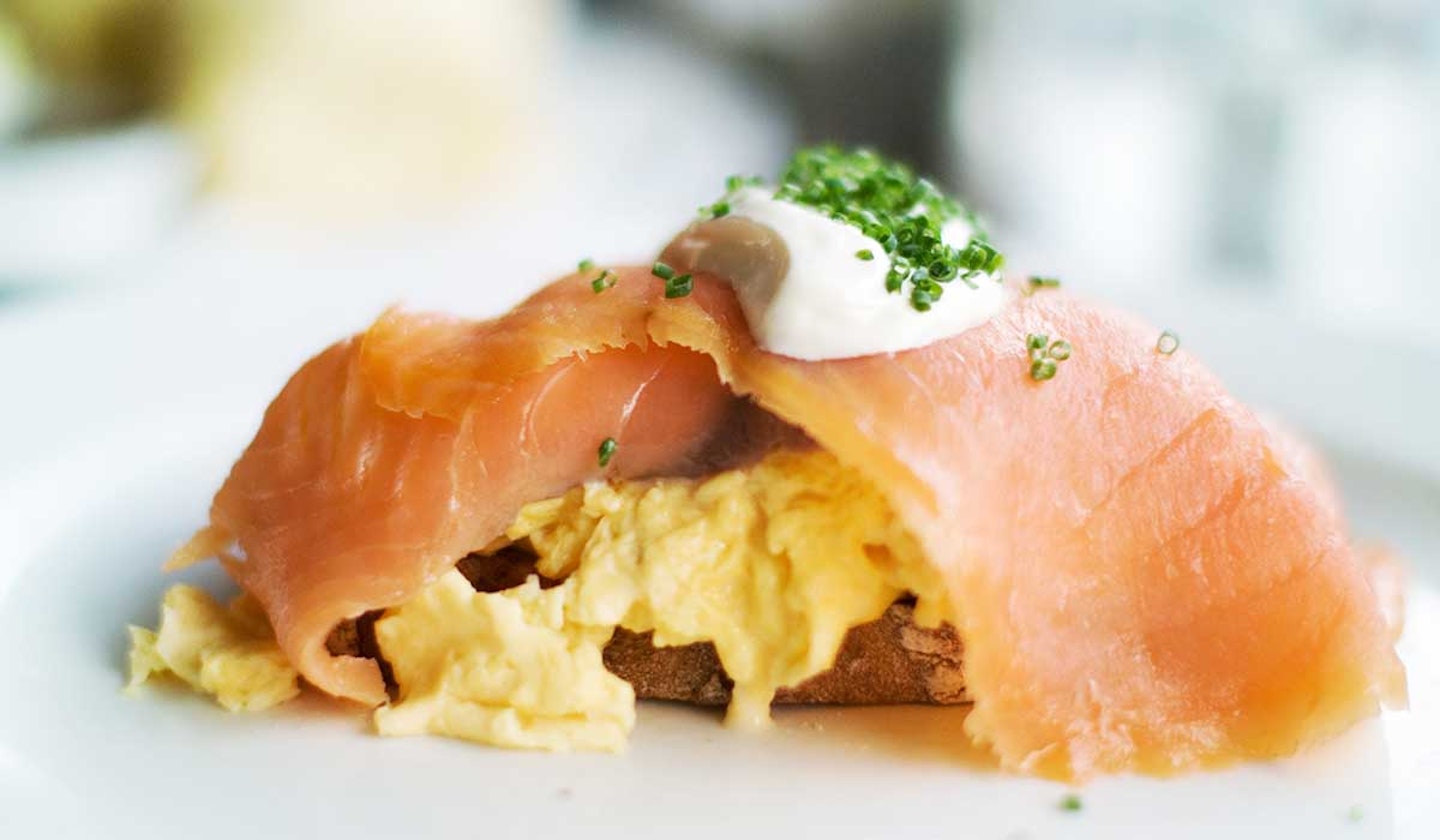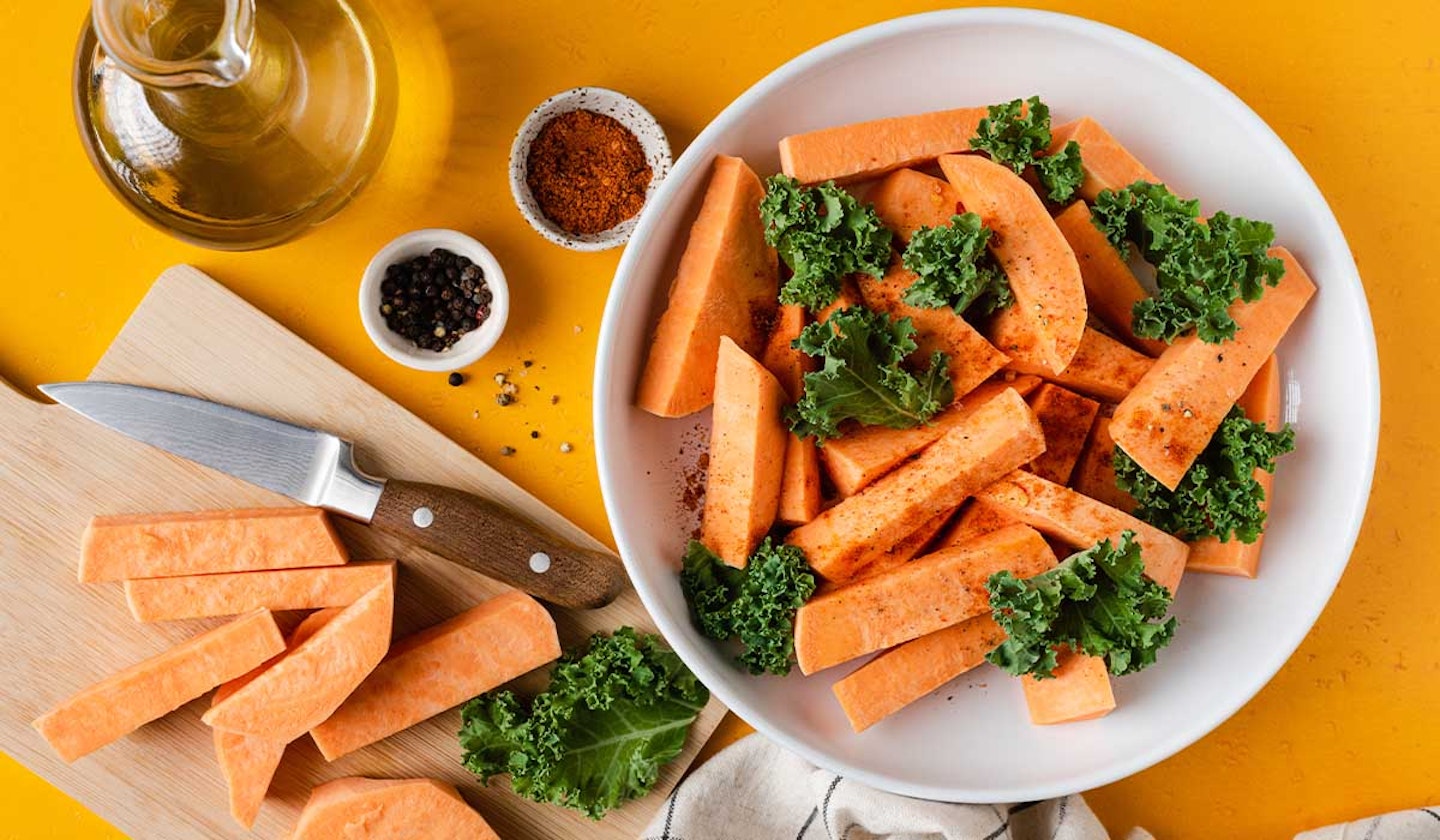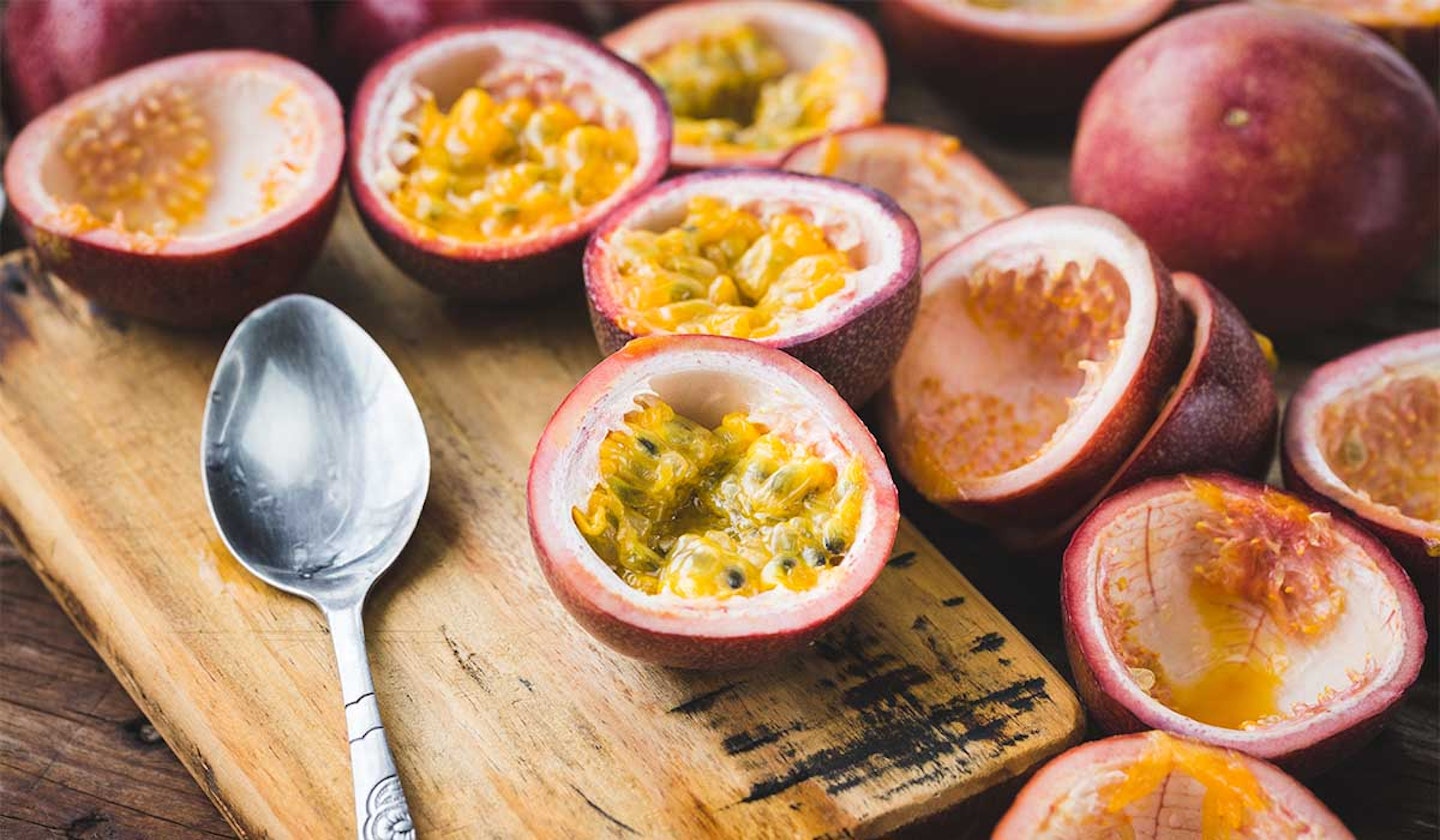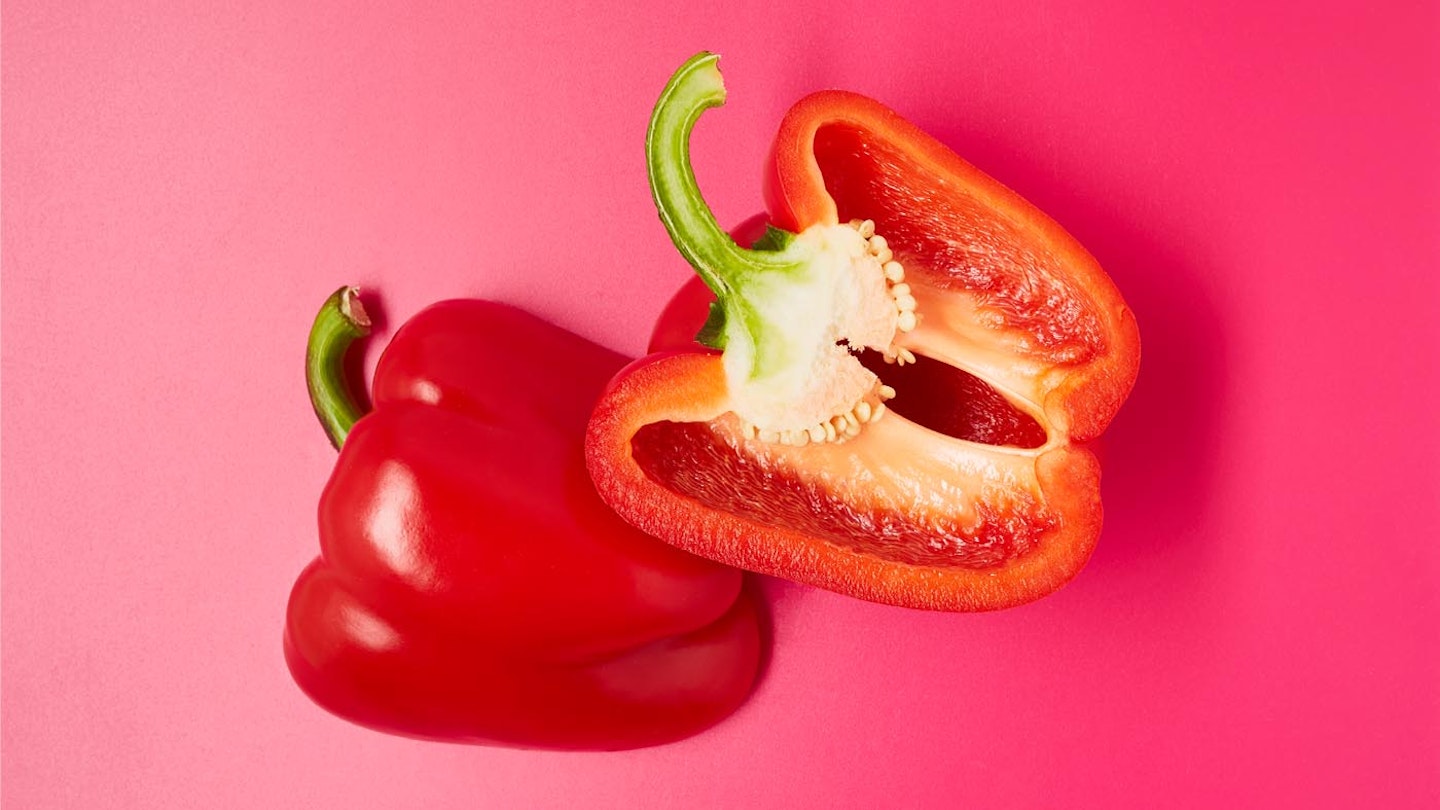There’s lots of vitamins and minerals which are important to help keep our bodies healthy, and one of these is vitamin A, also known as retinol. Similar to vitamin C foods, there are many vitamin A foods that are tasty and nutritious and full of this important vitamin.
While deficiencies in vitamin B foods can impact your energy levels and brain function, deficiency in vitamin A can be very serious and in some cases can lead to hair loss, skin problems, increased susceptibility to catching infections and dry eyes, so it's important we absorb enough through our diet or vitamin supplements.
How does vitamin A help your body?
The NHS says vitamin A helps keep our immune system in check, helping us fight off infection and illness, as well as assisting our vision and keeping our skin healthy. You should be able to get all the vitamin A you need from your diet and luckily there are lots of foods that contain vitamin A as well as supplements we can take to top up our intake of this vital vitamin.
How much vitamin A should I have?
Like with eating vitamin D foods, you should be able to get all the vitamin A you need through your diet. However, if you do take vitamin A supplements, be careful, as too much of it can be harmful and affect your bones, especially if you're older.
The NHS recommends the following amounts of vitamin A for adults aged 19 to 64:
• 600 µg (micrograms) a day for women
• 700 µg (micrograms) a day for men
If you also take supplements that contain vitamin A, make sure your total daily intake of vitamin A from food and supplements doesn't exceed 1,500 µg (1.5 mg).
If you love liver pâté and eat it more than once a week, you may be getting too much vitamin A. If you eat liver every week, you shouldn't take vitamin A supplements, as you'll be consuming too much.
If you're pregnant, too much vitamin A can be harmful to your unborn baby, so you shouldn't take supplements and avoid foods that contain high amounts of it (such as pâté and liver products).
Vitamin A foods

It's important to note that vitamin A1, also known as retinol, is only found in animal products. The best sources of vitamin A include:
• Cheddar cheese (28g contains 68µg vitamin A)
• Whole milk (237ml contains 76µg vitamin A)
• Eggs (one large hard boiled egg contains 75µg vitamin A)
• Salmon (100g contains 69µg vitamin A) – Salmon is also a great form of omega 3.
• Beef liver (100g contains 7,730µg vitamin A)
• Lamb liver (100g contains 7,780µg vitamin A)
• Cod liver oil (1 tbsp contains 4,080µg vitamin A)
• Mackerel (100g contains 252µg vitamin A)
• Bluefin Tuna (100g contains 757µg vitamin A)
• Goat's cheese (28g contains 80µg vitamin A)
• Butter (14g contains 95µg vitamin A)
• Camembert cheese (28g contains 68µg vitamin A)
• Trout (100g contains 100µg vitamin A)
• Clams (100g contains 101µg vitamin A)
• Oysters (100g contains 98µg vitamin A)
• Cream cheese (28g contains 86µg vitamin A)
Vegetables high in vitamin A

If you're a vegetarian or vegan, then there are other ways you can get vitamin A into your diet through a plant based diet. Another way you can produce vitamin A is through consuming foods containing beta-carotene, as the body converts this into vitamin A. foods that contain this include:
• Kale (118g contains 172µg vitamin A)
• Carrots (155g contains 1,280µg vitamin A)
• Raw red pepper (1 large whole pepper or 164g contains 257µg vitamin A)
• Baked sweet potato (200g contains 1,920µg vitamin A)
• Baked butternut squash (205g contains 1,140µg vitamin A)
• Cooked spinach (180g contains 943µg vitamin A)
Fruits high in vitamin A

• Mango (165g contains 89µg vitamin A)
• Papaya (165g contains 78µg vitamin A)
• Watermelon (155g contains 43µg vitamin A)
• Passionfruit (two passion fruits or 36g contains 23µg vitamin A)
• Tangerine (one tangerine or 109g contains 37µg vitamin A)
• Apricot (two apricots or 70g contains 67µg vitamin A)
• Cantaloupe (160g contains 270µg vitamin A)
• Grapefruit (154g contains 89µg vitamin A)
• Nectarine (140g contains 29µg vitamin A)
• Guava (140g contains 34µg vitamin A)
Ways to absorb more vitamin A
It's important to note that vitamin A is more efficiently absorbed into the bloodstream when consumed with fatty foods. That's why it's better absorbed from animal products as they tend to be higher in fat.
We'd advise adding a dash of olive oil to your plant based salad to help your body better absorb the vitamin A from plant based foods that are high in vitamin A. For example, you could have a lettuce based salad with raw carrot and pepper with some baked sweet potato on the side with some olive oil dressing drizzled over the top.
If however you are concerned you're not getting enough vitamin A foods in your diet, we'd advise taking a vitamin A supplement to give your levels a boost.
Signs of vitamin A deficiency
While apparently vitamin A deficiencies are rare, they can occur, especially for those living in poverty or eating a very restricted diet. If you're suffering from a mild vitamin A deficiency, you may experience tiredness, be more susceptible to infection and infertility. Those suffering from more serious vitamin A deficiency may experience dry hair or skin, white patches on your eyes, xerophthalmia or nyctalopia.
If you've noticed your hair thinning you may want to try some hair supplements that are high in vitamin A to boost the thickness of your hair. Equally, if you notice your skin is dry or dull, there are plenty of skin supplements high in vitamin A that are targeted to nourish your skin from within. These work in a similar way to collagen supplements which are designed to rejuvenate your skin. You may also want to consider some collagen supplements for your skin, hair and nails and depending on your age and symptoms, menopause supplements are something you may benefit from.
It's a good idea to check with your GP or pharmacist before taking any additional supplements for your health as they'll be able to advise on the best supplements for you depending on your health, symptoms and personal needs.
Lorna White is a Senior Digital Writer at Yours.co.uk. She was previously a writer at Yours Magazine writing features and news stories before joining the digital team. Lorna loves the great British countryside and likes to spend her spare time out and about in her home of Nottinghamshire walking her dog, Pippin.

